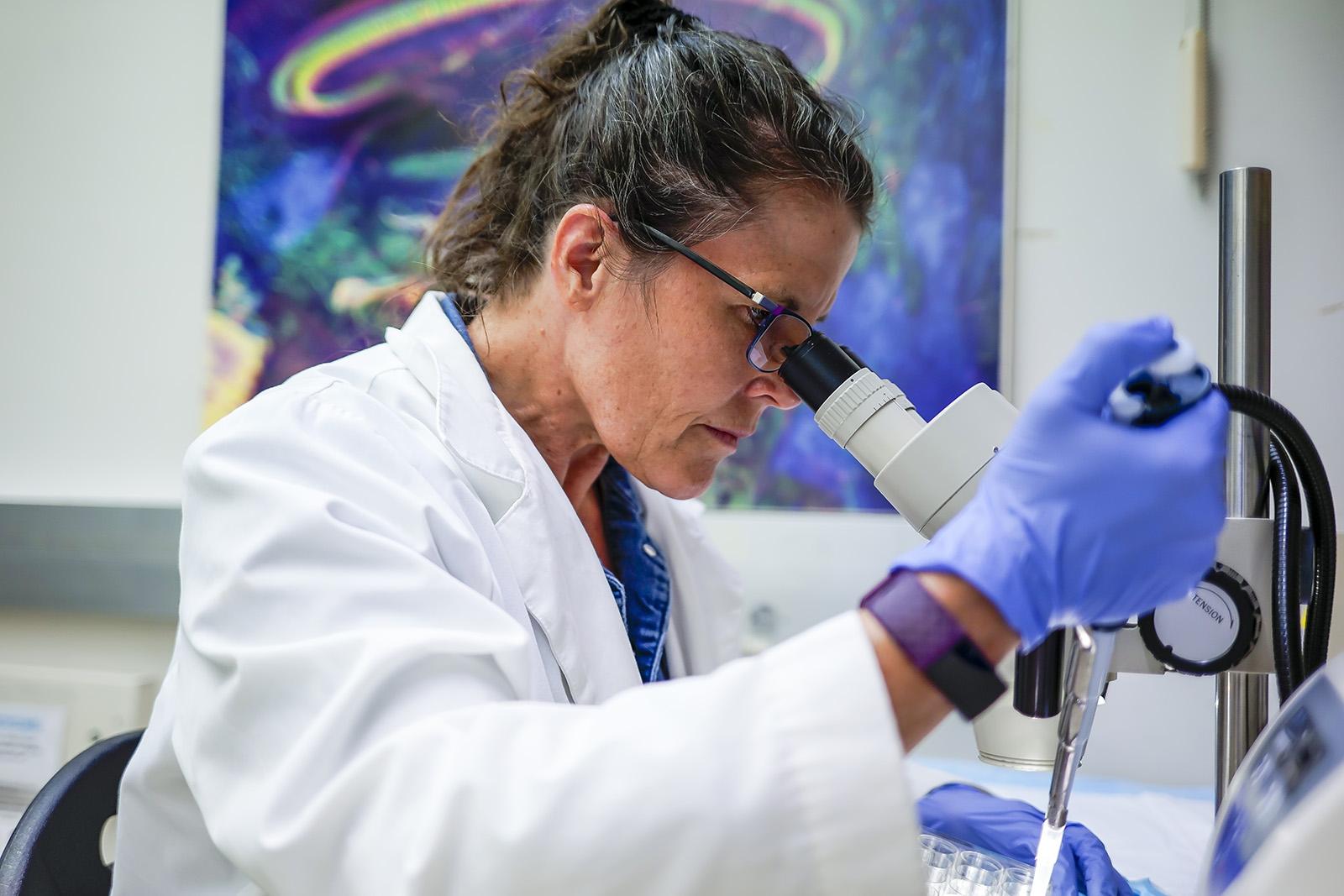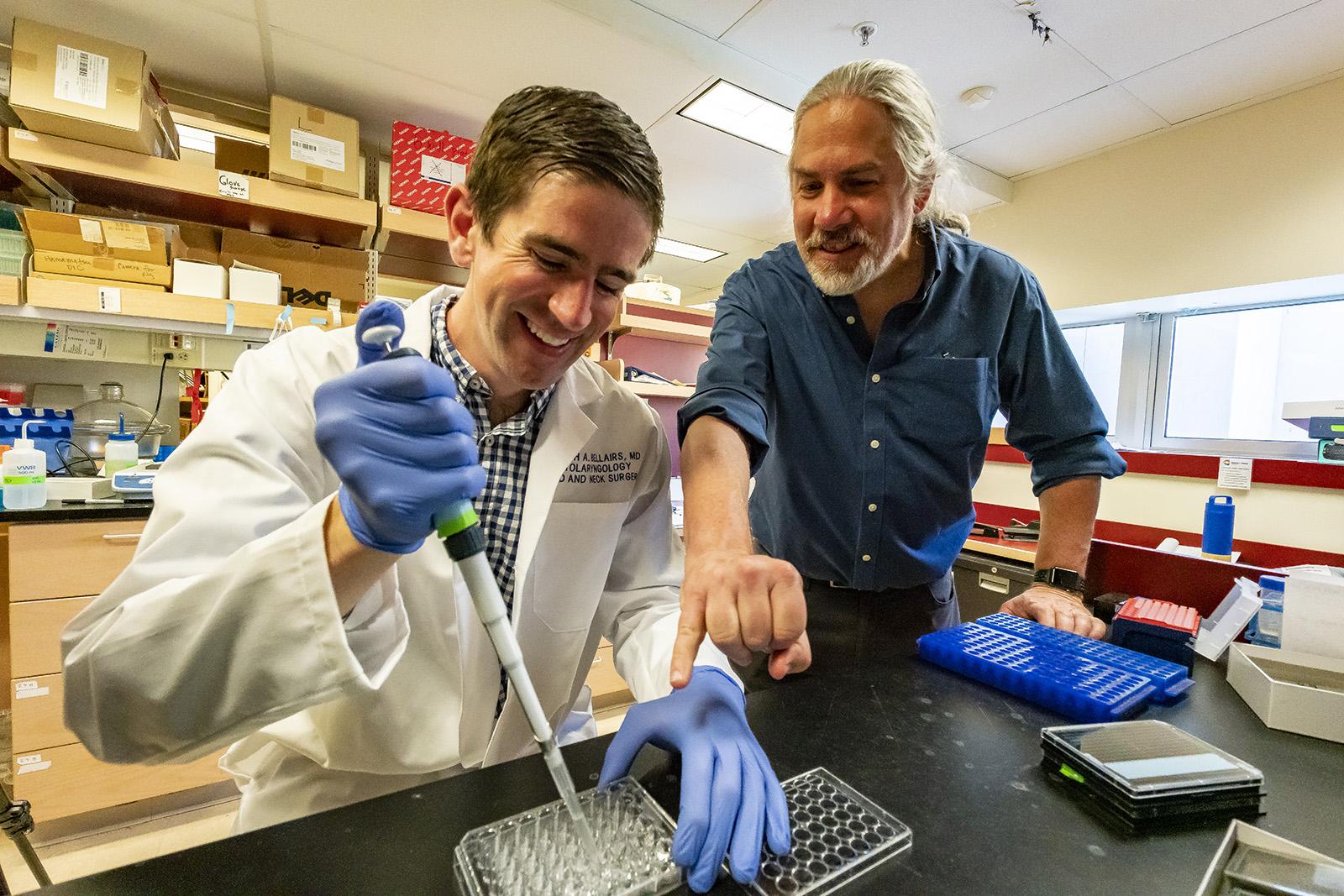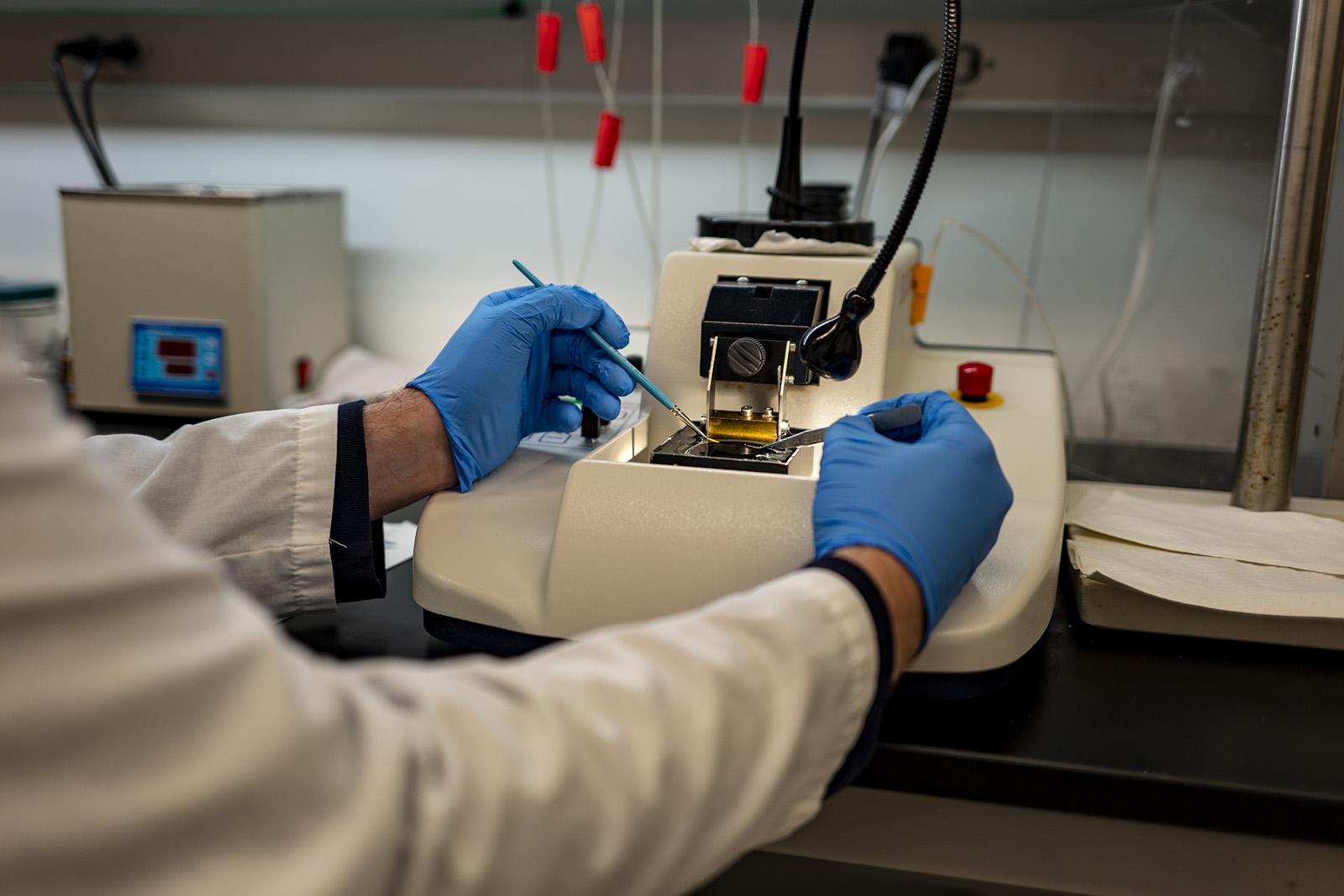Sinus and Skull Base
Clinical Outcomes Research in Rhinology
The University of Washington's Division of Rhinology is committed to improving patient quality of life through exceptional clinical care and pioneering innovation, rooted in a rich history of outcomes research.
Advancements in Patient-Generated Health Data:
We have implemented patient-generated health data to enhance precision in care. Our electronic database, the Computer Adaptive Sinus Intake (CASI), includes patient-reported outcomes measures and longitudinal metrics and serves to support our clinical care and outcomes research endeavors.
Exploring Cognitive Effects of Chronic Rhinosinusitis:
We utilize a comprehensive array of tools, such as patient-reported measures, cognitive testing, and noninvasive video oculography, to gain an enhanced understanding of the broader effects of how sinonasal inflammation may affect brain function.
Innovation in Understanding and Treating Invasive Fungal Rhinosinusitis: We study invasive fungal rhinosinusitis, collaborating with infectious disease experts to develop intervention guidelines and deepen our understanding of disease progression, contributing to the development of effective management guidelines.
Harnessing artificial intelligence to diagnose sinus disorders and predict treatment success:
We are on the cutting edge of evaluating the use of AI in Rhinology. Specifically, we are investigating the use of machine learning algorithms in the analysis of patient-generated health data, as well as endoscopic and radiologic data, to more accurately diagnose diseases including chronic rhinosinusitis. We are also developing “predictive” signatures to determine which patients are most likely to benefit from specific treatments.
Basic and Translational Research in Rhinology
We work with animal models to rigorously validate the efficacy of NO-releasing therapeutics, laying the foundation for innovative and impactful interventions in CRS treatment.
Enhanced Understanding of Bacterial Evolution in Chronic Rhinosinusitis (CRS):
Our exploration of bacterial evolution in CRS aims to understand the dynamics contributing to this condition. By deciphering the evolutionary patterns of bacteria associated with CRS, our goal is to uncover novel strategies for effective intervention and treatment.
Progress in the Use of Micro/Nanoparticles for Sustained Nitric Oxide (NO) Release in CRS Treatment:
In collaboration with the UW Cystic Fibrosis program, we are evaluating the use of groundbreaking nitric oxide-releasing micro/nanoparticles for the treatment of bacterial infections in refractory CRS.
Multi-Institutional Collaborations in the Study of Sinonasal and Skull Base Disorders
We actively engage in several multi-institutional endeavors focused on studying outcomes in both inflammatory sinus disease and sinonasal cancer. Notably, we participate in the Cole-Reagins registry for sinonasal cancer (CORSICA), a collaborative effort aimed at enhancing treatment outcomes and assessment for rare sinonasal tumors.
Furthermore, our collaboration extends to partnering with other institutions to gain insights into racial and ethnic disparities in chronic rhinosinusitis, exploring their impact on pathophysiology and outcomes. This collaborative approach strengthens our commitment to comprehensive research and improving outcomes in the field.
Using Artificial Intelligence to Make Endoscopic Sinus/Skull Base Surgery Safer and More Efficient:
We are working with our colleagues in UW Engineering and at Seattle Children’s Hospital to leverage state-of-the-art machine learning and computer vision algorithms for the development of next-generation surgical hardware and software tools including those that enhance complex surgical planning and others that will revolutionize image-guided surgical navigation.
Faculty researchers
Waleed M. Abuzeid, MD
ASSOCIATE PROFESSOR
Alexander G. Chiu, MD
PROFESSOR; UW SOM EXECUTIVE VICE DEAN AND SENIOR VP FOR MEDICAL AFFAIRS
Ian M. Humphreys, DO FARS
ASSOCIATE PROFESSOR
Aria Jafari, MD
ASSISTANT PROFESSOR
Support Our Work
We greatly appreciate donations to help fund the advancement of our specialty through patient care, education, and scientific exploration. All donations received directly impact patient care at all levels.



